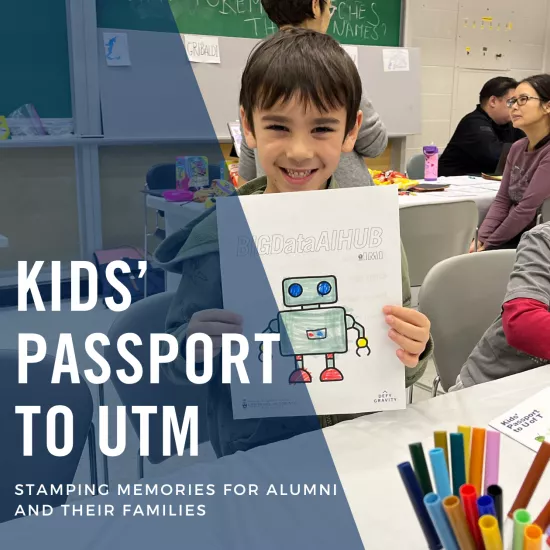Irene Duah-Kessie (MScSM '19) : STEM Enthusiast and Entrepreneur

While helping care for her brother throughout her youth, Duah-Kessie came to appreciate the endless support medical practitioners provided her family.
The experience inspired Duah-Kessie to attend McMaster University for an undergraduate degree in life sciences. Working alongside a conservation team in Honduras as part of an environmental studies research course, Duah-Kessie discovered an interest in sustainability.
“[The project] solidified a way for me to merge my passion for helping people with my interest in promoting good health,” she says. “I gained exposure to public health as it pertained to the environment.”
The new passion inspired Duah-Kessie to pursue the Masters in Sustainability Management (MScSM) at UTM. However, her previous experience in undergraduate studies had not been without its challenges.
“I felt lost, I was the only or one of the few Black students in many classes, which was new to me,” says Duah-Kessie of her first year at McMaster. “I grew up in a multicultural community, so I didn’t feel like an outsider until I moved to live away from home.” The overwhelming feelings of loneliness and homesickness took a toll on Duah-Kessie’s grades, but after her first year, Duah-Kessie decided to return to McMaster University with a newfound determination to persevere through the difficulties.
Duah-Kessie was a founding member of the McMaster Womanists, an organization which “brought Black women on campus together to explore identities and what they were feeling.” Through this organization, Duah-Kessie regained her confidence and deepened her passions for the Black experience, advocacy and public health.
“Research isn’t just lab coats and beakers,” she says. “I learned, through my community work, that research is more about building and expanding knowledge.”
Duah-Kessie took this enterprising spirit to U of T’s MScSM program, where in one of her business classes she pitched the concept for Rise in STEM, grassroots organization to address systemic barriers to STEM education among Black youth.
“I started (Rise in STEM) because there was so much I wish I knew before I went to school,” she says. “Fortunately, I was able to cultivate my community but for so many, if you can’t see it you can’t believe.”
After receiving positive feedback idea from her peers and professors, Duah-Kessie expanded Rise in STEM into a well-known Toronto-based organization providing enrichment and educational programs.
“There’s this narrative that college or STEM isn’t for Black students,” she says. “But I want to convey that it isn’t about if you’re capable or not, sometimes it’s about having access to a nurturing environment and knowing when and where to ask for help.”
Duah-Kessie says she appreciated the hands-on teaching approach of the MScSM program and its integrated internship, which she completed with the Wellesley Institute, receiving mentorship and working with leaders in health equity research.
“I knew that once I completed it, this was the kind of work I wanted to do,” says Kessie.
Earning professional experience by conducting and publishing research inspired Duah-Kessie to help expose young Black and underrepresented students to a variety of STEM career paths, and she advises students make the most of every opportunity.
“Be open minded to different possibilities and pathways, getting involved in community,” she says. “Don’t be afraid to pivot and try new things.”
Story originally published by Black at UTM



